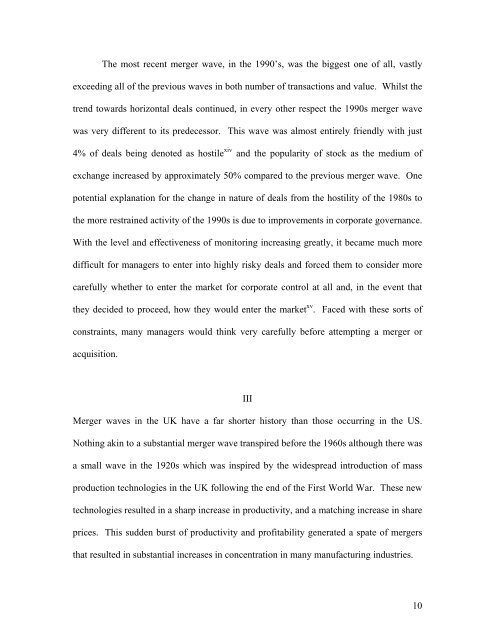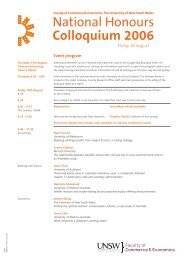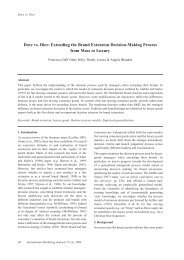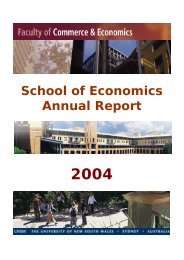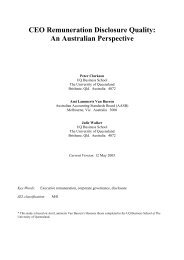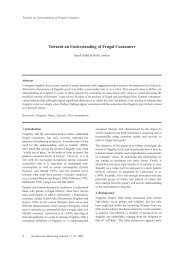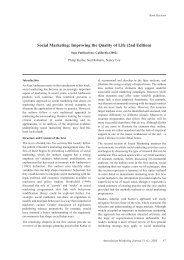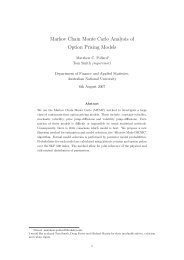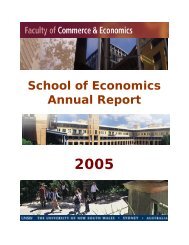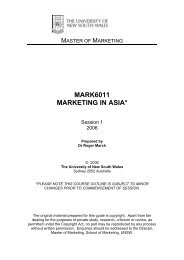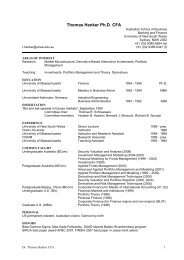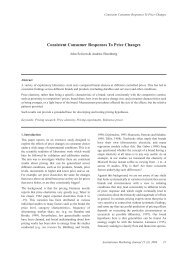The history and mystery of merger waves - University of New South ...
The history and mystery of merger waves - University of New South ...
The history and mystery of merger waves - University of New South ...
You also want an ePaper? Increase the reach of your titles
YUMPU automatically turns print PDFs into web optimized ePapers that Google loves.
<strong>The</strong> most recent <strong>merger</strong> wave, in the 1990’s, was the biggest one <strong>of</strong> all, vastlyexceeding all <strong>of</strong> the previous <strong>waves</strong> in both number <strong>of</strong> transactions <strong>and</strong> value. Whilst thetrend towards horizontal deals continued, in every other respect the 1990s <strong>merger</strong> wavewas very different to its predecessor. This wave was almost entirely friendly with just4% <strong>of</strong> deals being denoted as hostile xiv <strong>and</strong> the popularity <strong>of</strong> stock as the medium <strong>of</strong>exchange increased by approximately 50% compared to the previous <strong>merger</strong> wave. Onepotential explanation for the change in nature <strong>of</strong> deals from the hostility <strong>of</strong> the 1980s tothe more restrained activity <strong>of</strong> the 1990s is due to improvements in corporate governance.With the level <strong>and</strong> effectiveness <strong>of</strong> monitoring increasing greatly, it became much moredifficult for managers to enter into highly risky deals <strong>and</strong> forced them to consider morecarefully whether to enter the market for corporate control at all <strong>and</strong>, in the event thatthey decided to proceed, how they would enter the market xv . Faced with these sorts <strong>of</strong>constraints, many managers would think very carefully before attempting a <strong>merger</strong> oracquisition.IIIMerger <strong>waves</strong> in the UK have a far shorter <strong>history</strong> than those occurring in the US.Nothing akin to a substantial <strong>merger</strong> wave transpired before the 1960s although there wasa small wave in the 1920s which was inspired by the widespread introduction <strong>of</strong> massproduction technologies in the UK following the end <strong>of</strong> the First World War. <strong>The</strong>se newtechnologies resulted in a sharp increase in productivity, <strong>and</strong> a matching increase in shareprices. This sudden burst <strong>of</strong> productivity <strong>and</strong> pr<strong>of</strong>itability generated a spate <strong>of</strong> <strong>merger</strong>sthat resulted in substantial increases in concentration in many manufacturing industries.10


